Teach Yourself Photography
Photography is not something you can learn really quickly. Nor is it something you can ever really fully learn - it is a continual learning process.
But if you're just starting with photography, then it can certainly help to be pointed in the right direction as to what skills you should try and learn first. And that's what I hope to do in this article.
Learn basic composition
The first thing I would suggest learning is the basic compositional guidelines. Having technical mastery of your camera is useless if your photos just turn out bland and boring due to bad composition. But a well composed photo taken with your camera in full auto mode can still look great.
There are thousands of articles about composition available for free on the internet, videos on youtube, and whole books written about it. To start off with, just learn one compositional rule. Put it into practice, see where it works and when it doesn't work.
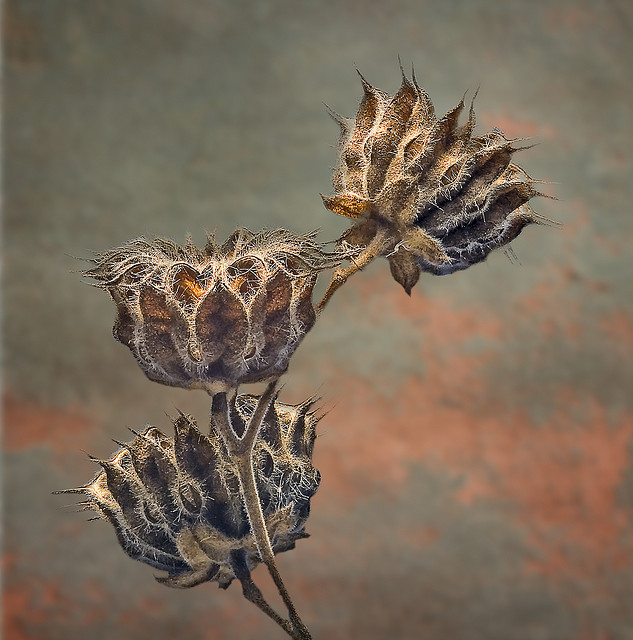
Weed Composition by Randen Pederson on Flickr (licensed CC-BY)
Then learn another rule and practice with that. Try using both the rules together. Actually practicing the rules you read about is the best way to ensure that you truly learn them and commit them to memory.
Learn how to use your camera
Using your camera in automatic mode can be very helpful when first starting out learning photography. Your camera takes care of all the technical stuff, while you can concentrate on the composition. However, after a while you find that having the camera do everything becomes quite limiting.
Your camera can't know if you want a photo to be dark or bright. It doesn't know if you want everything in the image in focus or just a small part. For creative photography, taking control of the camera settings yourself is often useful.
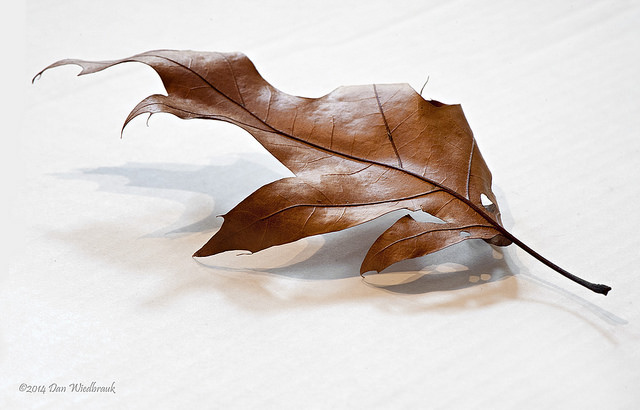
High Key Leaf 4 by Dan Wiedbrauk on Flickr (licensed CC-BY-ND)
This doesn't necessarily mean taking full control and making each setting yourself manually, without the camera setting anything automatically. Rather, it means knowing the camera settings that are available to you and how to use them. Then, when you want to achieve a specific effect, you'll know what combination of camera settings you need to choose, and which ones you can leave to the camera to decide.
The three main settings you should read up on are those that form the exposure triangle: Aperture, ISO, and Shutter speed. These settings not only control exposure but things such as how much of the image is in sharp focus, and whether fast motion appears sharp or blurred.

Wink ;o) by â…¯eagan on Flickr (licensed CC-BY)
Read up on these settings and how they interact together. Check your camera manual to see how to set them on your camera. And make sure you practice with them, changing each setting and seeing how the change effects the resulting image.
Learn lighting
Photography is all about capturing light, so understanding lighting is extremely important to crafting great photos. Whether it's artificial light or natural light (or a combination of both) you need to understand how the light affects a scene, and how you can control it.
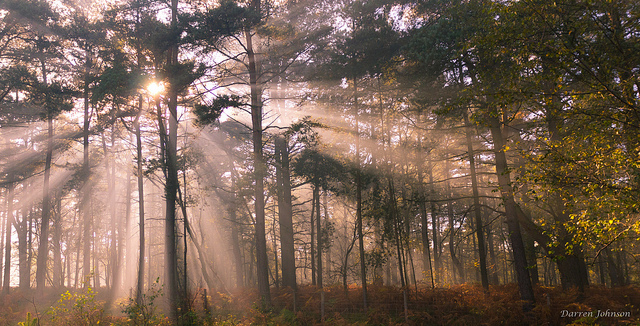
Light Bomb by Darren Johnson on Flickr (licensed CC-BY)
As with composition, there are thousands of articles and plenty of videos and books on photographic lighting to aid you in your understanding. The main three things to learn about are how the harshness or softness of light affects an image, how the direction of light is important, and how the color of light affects the mood.
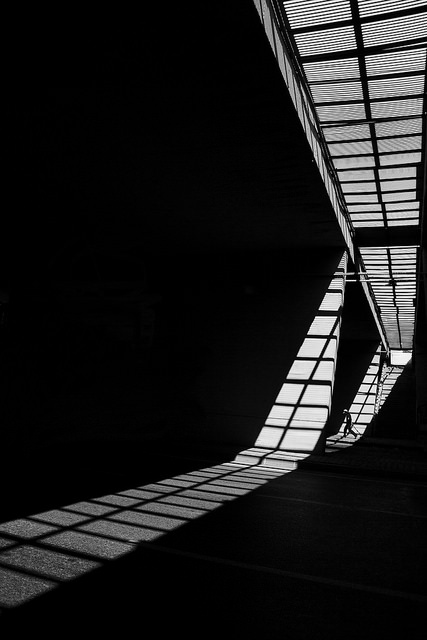
Life in Light by Tuncay on Flickr (licensed CC-BY)
Again, try to learn one thing and put it into practice. Don't just take the information you're given as true - test it out. Is soft light really better for portraits than hard light? Take some photos with both types of lighting yourself so you can really see and understand the differences.
Learn from others
Study the work of photographers you really admire. What are they doing in their photos that is different to what you're doing in your photos?
Something very useful you can do to this end is finding photographers that offer behind the scenes information on their shoots. Many photographers either post behind the scenes photos, or have a blog where they discuss how a shoot went, any problems they had, and how they overcame these problems.
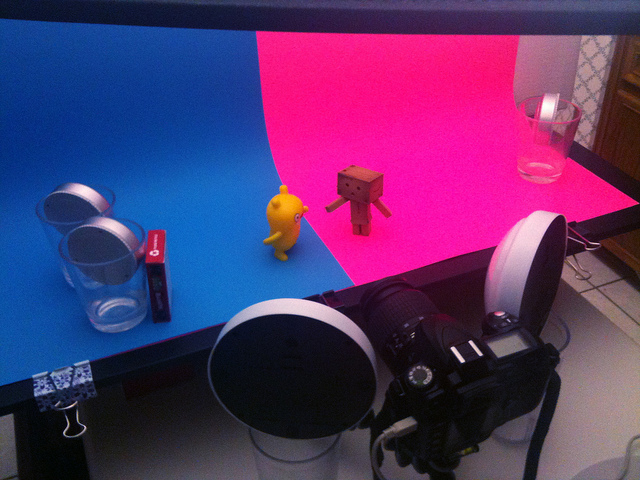
Jeero vs. Danbo Setup by JD Hancock on Flickr (licensed CC-BY)
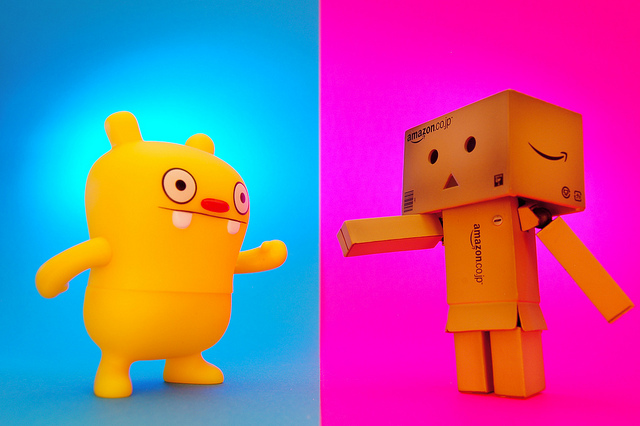
Jeero vs. Danbo (217/365) by JD Hancock on Flickr (licensed CC-BY)
A good knowledge of lighting can allow you to reverse-engineer how a photo was lit. But if the photographer has posted a photo showing the actual lighting setup used, written a blog post describing it, or in some cases, even produced a behind-the-scenes video, then this makes the whole process much easier.
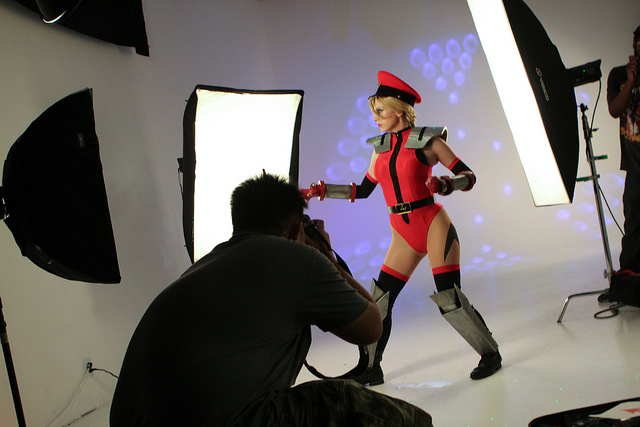
Cosplay Shoot BTS by Pat Loika on Flickr (licensed CC-BY)
And just like the previous points, when you've learnt how a photo was made, then try and put that into practice in your own photography. No, you don't want to just blatantly copy someone else's setup to get the exact same photo. But copying can help you learn more about the lighting and techniques used, and hopefully also help you to understand why they were used for that particular type of shot.
You might notice a common thread throughout all these points - learn and then put into practice what you just learnt. Without practice you stand little hope of improving your photography. Just like most other things in life, practice doesn't quite make perfect, but it certainly does make you better. So what are you waiting for? Get your camera out and get practising!
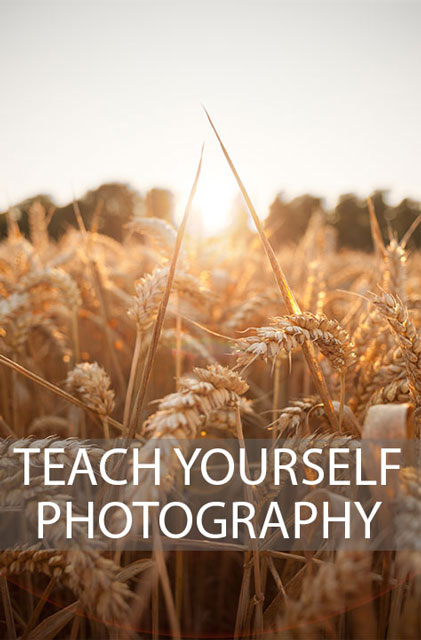





Thanks for this amazing advice. We have both always love photography but we always find it difficult to produce photos that are good quality. We will certainly be using these tips.
how do i add my name to all of my pictures that i take
Hi Erica
If you want to add your name to the metadata of your photos, most photo management / editing software allows you to do this. Just search the web for something like ‘Lightroom copyright metadata’ (replace Lightroom with whatever software it is you use) to find out how to do it. Many cameras also allow you to set them up so that they automatically write a copyright notice to all images – you’ll need to check your camera’s manual to find out how to do this with your camera.
Bear in mind though that metadata can easily be removed from a photo if you share your photos online.
If you want to add your name so that it appears as part of the image, this is known as a watermark. Again, just search the web for something like ‘Lightroom watermark’ (replacing Lightroom with whatever software it is you use) to find out how to do this with your software. Because a watermark is part of the actual image content it is much more difficult for others to remove.
Hope that helps!
Dave
That last video was the worse attempt at a teaching video I have ever seen.
Fabulous video!
Any tips on software and camera choice for a beginner? My 13yr old has been really interested in photography but I’m not sure how to get her started?
Hi Shareda
If you’re looking for a camera that allows them to grow as their experience and knowledge increases, then I’d recommend getting an interchangeable lens camera with a basic lens kit. They can use it first in fully automatic mode. Then they can try using it in semi-automatic modes like shutter and aperture priority, learning how these different settings affect the look of the image. As they use it more they’ll find what sort of photography they enjoy most and the capability of the camera can be expanded further by purchasing additional lenses, flash, or other accessories.
Similarly, for software I’d suggest Photoshop Elements. This has basic, guided, and expert modes. So as their experience grows, they can move from the basic mode to the expert mode. If they just started off with the full version of photoshop they’d likely suffer from overwhelm, with all the different options and settings that are offered. So I think a camera and software that allows you start with everything simple and automated, but later use more settings and features as your confidence increases, is the best idea.
Hope that helps!
Dave
Thanks Dave, this helps alot!! Last question do you recommend any particular brand? Canon? Nixon? Etc.
There are differences between the brands, but all the cameras are pretty decent nowadays. Unless you have highly specialised needs (which a beginner won’t), then the brand doesn’t really matter.
One difference between different camera models that might be important is how well their continuous focusing (keeping a moving subject in focus) works. All cameras are good at focusing on static subjects, but some of them aren’t quite so good at keeping focus on moving subjects. If she finds she wants to get into Sports photography or anything involving relatively fast movement it could be important.
Generally DSLRs (most models from Canon and Nikon) are pretty good at continuous focusing, but it’s best reading reviews to check how good an indivdual camera is.
Got it, thanks
Any suggestions on books or where to find info on using an old Konica -T 35 mm camera. Used to use one like it MANY years ago but it’s been since forever.
Hi Annie
The basics of photography are the same no matter what camera you’re using. It tends to be more how to change settings and the features available that varies between cameras. For example, composing a good photo will be the same using your camera or the latest DSLR or a phone camera. But setting the focus would be very different. If you’re looking for information specific to your camera, you can find a copy of the manual here: http://www.butkus.org/chinon/konica/konica_auto-t/konica_auto-t.htm
If it’s something not exactly specific to only that model but still somewhat specific to that type of camera, such as how to focus manually or loading film, you can normally search the web for whatever it is you’re having difficulty with to find the answer. You could also try and purchase an old photography book. You’d want to try and get something from the early 70s if possible (around the same time as the camera) so the photography tips include tips relevant to that type of camera as well as more general tips.
Dave
Where is the best place to have photos printed?